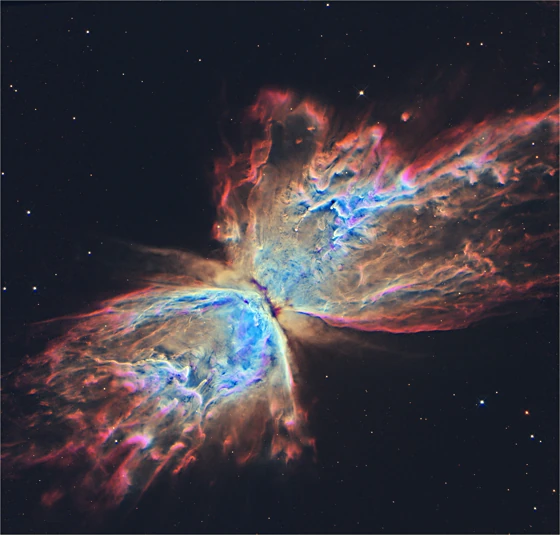
Some things are more meaningful than others. Some purposes are more important than others. Some ethical considerations outweigh others. Some aspects of your identity are core to who you are, whereas others are incidental.
But often it is hard to compare. What is the most important thing to do? Which choice should you make in an ethical dilemma of conflicting principles? Which parts of your identity are you least willing to let go of in difficult, changing circumstances?
Eternalism hijacks two accurate observations, that some things are clearly more meaningful than others, and that much suffering can come when a comparison is not clear. It promises an “ultimate” standard that would resolve all such questions.
“Ultimate” literally means “last.” What would the last meaning be? Last how?
“Ultimate” is also used to mean “greatest and most important.” Greatest how? Most important why? The word is extremely vague, but sounds impressive, like whoever says it must know what they are talking about. That makes it ideal as a weasel word, like “really.” Eternalism typically uses “ultimate meaning” non-specifically, as synonymous with “real meaning” or extra-special fancy meaning. That means “do whatever we say and don’t ask questions.”
Nihilism, on the other hand, often takes the word more seriously, asks what “ultimate meaning” would actually mean, and comes up with some specific answers. It observes that there isn’t any meaning like that, decides this is somehow awful, and descends into depression.
Is there a scale?

When someone invokes the potentially weasly word “ultimate,” questions you should ask include:
- Specifically what scale?
- Does it work to put these things on a single scale?
- Is there in fact a linear ordering here? Is “scale” the best way to think about this?
- Why is this scale relevant or correct? Should I care about it?
- What other scales might be relevant?
- Does it have an end point?
- Is the end point the only one that matters?
- What’s happening in the middle?
- Maybe some point other than the end is better, more interesting, or more relevant?
That some things can be weighed as greater or lesser does not imply that every two things can. Some people unambiguously sing better than some others, but there is no absolute scale of singing prowess, and comparison is often meaningless. There is no “ultimate singer” (despite music industry hype and teenage infatuations).
Maximal or infinite meaning
As types of special meaning, absolute meaning and transcendent meaning are binary, qualitative categories: they contrast absolutely with relative and mundane meaning. “Ultimate” implies the existence of a quantitative scale of greater and lesser meanings.
If there’s a scale of meaningfulness, then everywhere on the scale is somewhat meaningful (except maybe zero at the bottom). This would contradict nihilism (unless everything is at zero, in which case it’s not a scale after all).
If meaningfulness was on a scale of zero to ten, and if you were at seven, you could think “well, I’m doing pretty well, actually!” Often, though, lite nihilism implicitly imagines a threshold, maybe around three point two. If life is only one point nine meaningful, that doesn’t count, and it might as well be zero. (We’ll look into that possibility in “Not enough meaning” later.)
By invoking the metaphor of a scale, “ultimate meaning” makes itself seem intuitive and reasonable. However, by focusing only on the top endpoint, it becomes qualitative and absolute in effect. Like lite nihilism, eternalism wants to count intermediate points as effectively zero. Either meaning is ultimate, or it’s not worthy of notice. “Ultimate” highjacks the intuition of differences in importance to give credence to a bogus absolutism.
If the scale ran from zero to ten, it might not seem reasonable to treat nine point nine as effectively meaningless. The phrase “infinitely meaningful” counters that accurate intuition. If there’s something that is infinitely meaningful, then all finite meanings are equivalently inconsequential in comparison. Three divided by infinity and 9,748,023 divided by infinity are both zero. This is an eternalistic rhetorical trick to get you to drop everything other than some special (but imaginary) meaning.
Varieties of ultimacy
The next several pages consider various scales invoked by “ultimate meaning.” Each distorts some partly-accurate intuition about meaning to make it seem that nihilism is the only alternative to eternalism. They declare “ultimate” endpoints that are either spectacularly meaningless (directing attention away from midpoints where meaning is obvious), or simply nonexistent.
-
“Cosmic meaning” hijacks the intuition that bigger things are often more meaningful. That is true only up to a point, though. Intergalactic space is enormous and almost completely meaningless, and “the meaning of the entire universe” doesn’t even exist. Nihilism encourages you to imagine looking back at your life from a distant galaxy, and hopes that from this imaginary distance it will seem meaningless. You are not in a distant galaxy, however. You are on earth, a meaning-saturated locality.
-
Meanings can be more or less durable. Longer-lasting ones are often more significant. Maybe “eternal meaning” would be most significant, if there were any. Eternalism promises there is some; nihilism accurately observes that there isn’t, but wrongly concludes that anything that can finish is meaningless. Directing attention to the end point of time, human extinction, or the heat death of the universe directs it away from the present, where meaningfulness is common.
-
Many things you care about will stop being meaningful after you die. If endpoints were all that counted, meanings during your life wouldn’t be meaningful. (Eternalism and nihilism are both big on meanings that aren’t meaningful… The complete stance finds this unnoticed self-contradiction pretty funny.)
-
Something that is meaningful only to a few people might not seem very meaningful, especially if you are not one of them. Mo’ people, mo’ meaning! Ultimately, to really count, a meaning should be universal: meaningful for everyone. Maybe even space aliens.
-
There’s a contrary intuition that the most intense meanings are personal; maybe even unique and private and ineffable. A spurious ultimatism suggests that unless your life has a single, definite, unique meaning it’s not meaningful at all. Existentialism promotes a doomed struggle to find or create this sort of meaning, which can’t exist.
-
Cats understand simple meanings, such as their own social signals, and many recognize the purpose of tools such as can openers. They are oblivious to, or misunderstand, most meanings humans care about. Perhaps superior space aliens see more meanings, more accurately, than we do. An ultimate being (such as God) would see all meanings perfectly accurately. Presumably there aren’t any, though.
-
Making an omelet is meaningful: you get something nice to eat. It’s not very meaningful, though. Writing a book is more meaningful, partly because it takes much of your time for years. It’s a big project, and bigger projects are more meaningful. Maybe your ultimately big project is your life as a whole? It’s hard to see what the meaning of that is, though—because it doesn’t exist. That doesn’t make living meaningless.
-
Some meanings are “higher” than others, on a scale different from mere intensity. It’s an accurate intuition that altruism and creativity are often more meaningful than materialistic self-gratification. This does not negate the meaningfulness of enjoyment, and does not imply the existence of some ultimate, “highest” form of meaning, as eternalism might wish. Recognizing this may lead to a nihilistic inversion: denying that higher meanings are meaningful at all.
-
“No ultimate meaning” sometimes means “in the final analysis” or “after full analysis.” Which analysis? Usually that’s not spelled out. It’s just gesturing toward the whole mass of nihilistic intellectualization and saying “there must be a convincing argument against meaningfulness in there somewhere!”
Meaning without a scale
Ultimate meaning would be convenient, if it existed and we had access to it. It doesn’t. That is inconvenient, but it doesn’t make everything meaningless. It doesn’t mean we can never make comparisons of importance.
Sometimes we have to make hard choices, without any ultimate standard.
We know for sure that we can do that, because we do do that.
